Authors Adil I Ahmad and Salma Husain take you on a gastronomical walk through the royal kitchens and the street food stalls of Lucknow in two different books. the guide savours the joyride
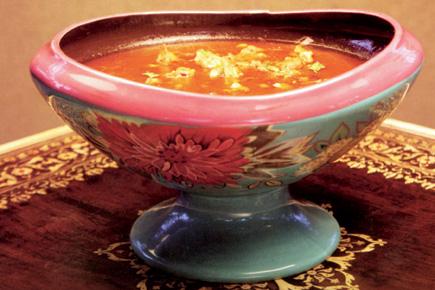
Mumbai Guide, food, Tehzeeb Culinary Traditions of Awadh, Paya, Bhayja, Baba Farid Ki Meethi Khichri, Awadhi cuisine, Adil I Ahmad, Salma Husain, Lucknow
Food in Lucknow was more than just about satiating hunger, it was an art, a lifestyle and tradition perfected over generations. And, it’s this rich aspect of Awadhi cuisine and life that author Adil I Ahmad has captured in the book, Tehzeeb: Culinary Traditions of Awadh.
ADVERTISEMENT
Whether it’s the kitchens of the wealthy with their exquisite cutlery and spread out tables, or the street food stalls known for their savoury kababs, the aromas of Awadhi cuisine live everywhere.
Ahmad uses references to his childhood memories of Lucknow, as well as conversations with his family members including his aunts — Farhat Kumar and Saba Hasan. Both have contributed with several recipes that have been shared in the book. Little wonder then, Ahmad’s book is an engrossing account of why Awadhi food is special. The photographs are byAnshika Varma.
Paya (Spiced trotters) Image on section opener cover
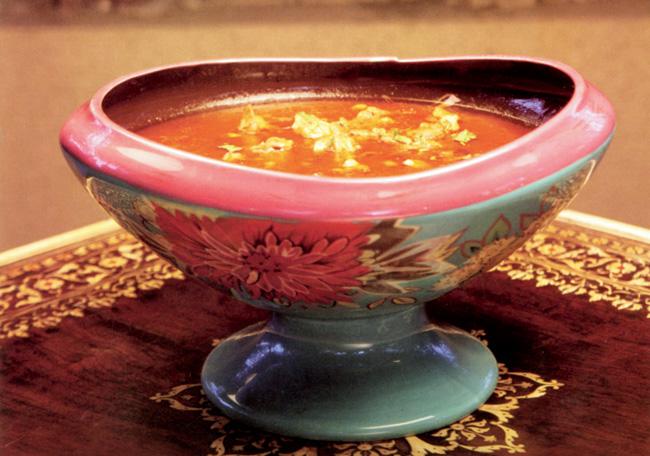
Paya is one of the several specialities of Awadhi cuisine, which shows the skill of its chefs. Pic courtesy/tehzeeb by Adil I Ahmad, Roli books
INGREDIENTS
>> 18 trotters (paya), small, skinned
>> 2 bay leaves
>> 1-inch stick cinnamon
>> 7 green chillies
>> 2 onions, large, cut into 8 pieces
>> 1¼-1½ cups vegetable oil
>> 4 onions, large, sliced long
>> 3¼ tbsp onion paste
>> 125 gm / 3¼ heaped tbsp garlic, ground to paste
>> 1½ -inch ginger, ground to paste
>> 3½ heaped tsp red chilli powder (should not be very hot)
>> 3 heaped tsp coriander powder
>> 1½ heaped tsp turmeric powder
>> 4 heaped tsp salt
>> 1½ cups yoghurt
>> 2 fistfuls green coriander, chopped
>> 2½ tsp garam masala powder
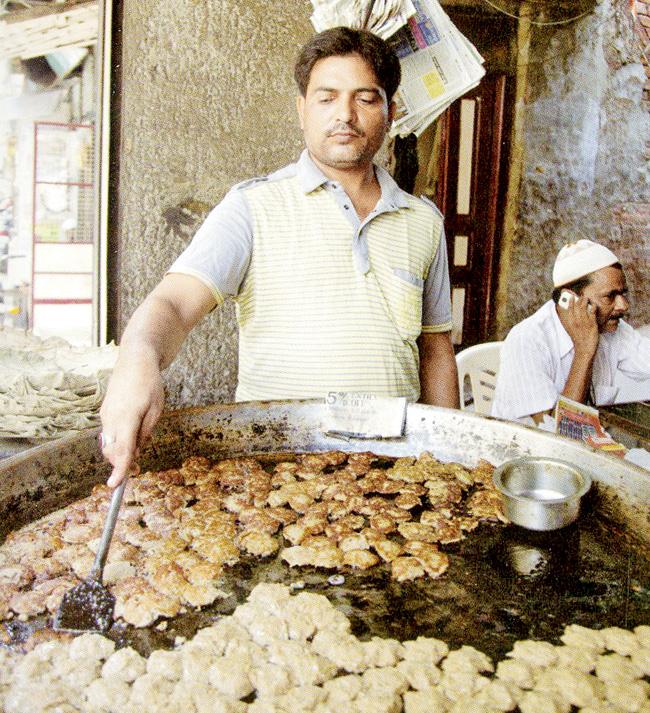
“Lucknow and Tunda Kabab are synonymous. This kabab is far more than being merely special, it is the signature of Lucknow, delicate and fragile, one of a kind,” writes Ahmad
METHOD
1. Put the trotters in the pressure cooker along with bay leaves, cinnamon stick, green chillies, onion pieces and enough water to cover, cook for 1 hour 50 minutes.
2. Heat the oil in a wok (kadhai); deep-fry the sliced onions till golden brown. Add the ground onion, garlic and ginger; fry for
8-10 minutes or till brown.
3. Now add the red chilli powder, coriander powder, turmeric powder, salt and yoghurt; mix well till the yoghurt is well incorporated. Fry for another 5-7 minutes (adding water) till the onions are dissolved.
4. Add the trotters along with the water. Bring to the boil, lower heat and simmer, covered, for 30-35 minutes.
5. Add green coriander and garam masala; cook, covered for two more minutes.
6. Serve hot.
— This recipe was shared by the author’s aunt Farhat Kumar
Bhayja (Brain Curry)
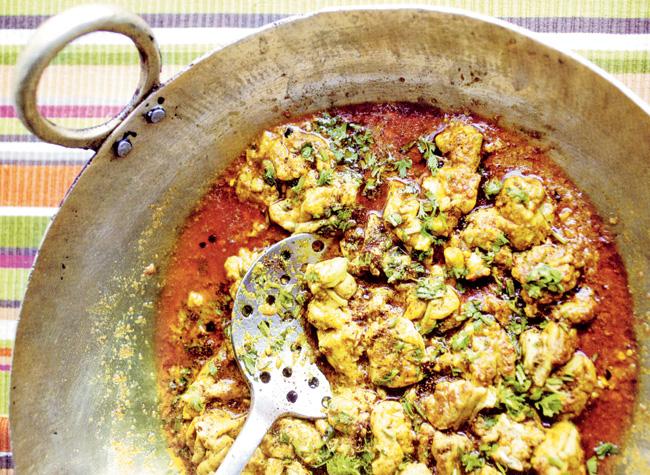
Bhayja (Brain Curry) often makes its way to the breakfast menu. PICS COURTESY/TEHZEEB, Roli Books
INGREDIENTS
>> 1 beef OR 4 mutton brains
>> ½ cup yoghurt (dahi)
>> 1 level tsp dalt, red chilli powder, coriander powder, turmeric powder each
>> 1/tbsp ginger and garlic paste each
>> ¼ cup vegetable oil
>> ½ tsp genugreek seeds
>> Green coriander leaves, chopped for garnishing, Dill leaves

“Women of the house almost always did the shopping — all the ingredients were carefully chosen for the day’s meals,” writes author Adil I Ahmad.
METHOD
1. Soak the mutton brains in water for 5 minutes. Carefully remove the skin. Brain should be intact.
2. Apply the yoghurt, salt, red chilli powder, turmeric powder, coriander powder, ginger and garlic pastes to the brain and keep aside.
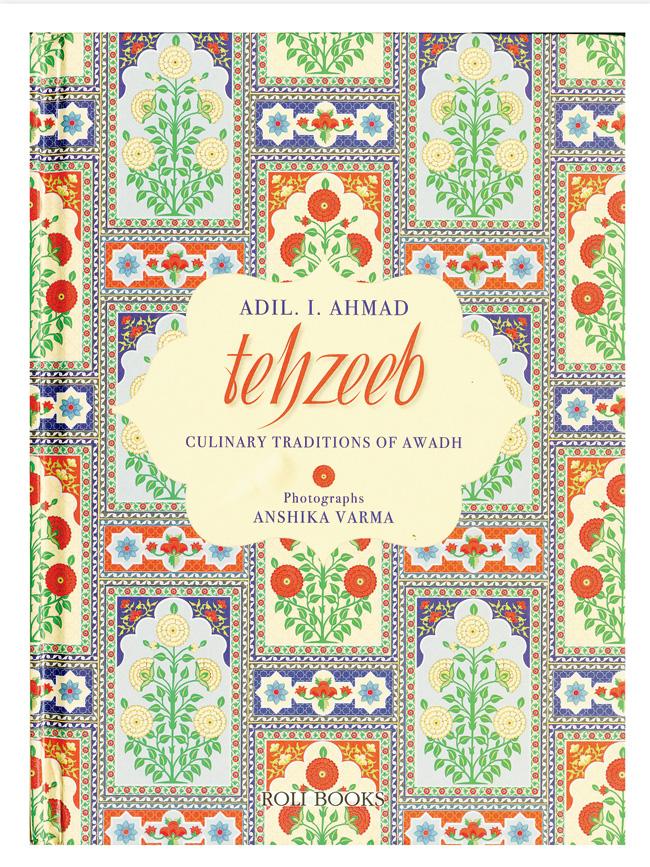
Tehzeeb Culinary Traditions of Awadh Adil I Ahmad, Roli Books, Rs 990
3. Heat the oil in a deep pan, add the fenugreek seeds. When they turn dark brown, slide in the brain along with the marinade and let it cook for 10 minutes. Carefully turn the brain over as a whole. Add a little water (½ cup) and let it cook for another 5 minutes. With a sharp ladle or knife, slice the brain into small pieces. Let it cook till the oil separates.
4. Serve hot, garnished with green coriander leaves or dill leaves.
— This recipe was shared in the book by author’s aunt Saba Hasan
 Subscribe today by clicking the link and stay updated with the latest news!" Click here!
Subscribe today by clicking the link and stay updated with the latest news!" Click here!






